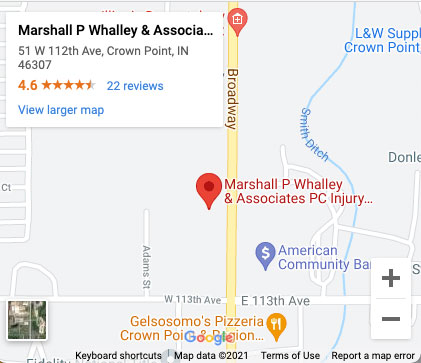Malpractice Attorneys Litigate Informed Consent Cases
Pursuing full compensation for violations of your patient rights
 A patient has the right to know the risks inherent in a course of treatment so he/she can make a truly informed decision. When a patient suffers harm from a risk that was knowingly or inadvertently concealed, and knowledge of that risk factor would have deterred the patient from accepting the treatment, the patient may be eligible for compensation. For more than 30 years, Marshall P. Whalley & Associates, PC has fought to uphold patients’ rights in medical malpractice actions.
A patient has the right to know the risks inherent in a course of treatment so he/she can make a truly informed decision. When a patient suffers harm from a risk that was knowingly or inadvertently concealed, and knowledge of that risk factor would have deterred the patient from accepting the treatment, the patient may be eligible for compensation. For more than 30 years, Marshall P. Whalley & Associates, PC has fought to uphold patients’ rights in medical malpractice actions.
What is informed consent in Indiana?
Informed consent is a healthcare protocol governing all non-emergency procedures. Before performing a procedure or administering a drug, a healthcare provider must explain the risks involved to the patient or the patient’s legal representative. Approval must be given before a treatment may begin. When healthcare providers do not follow the informed consent guidelines, they rob the patient of the ability to make a knowledgeable decision.
Only competent adults may consent to healthcare treatment. Minors and incapacitated adults must be represented by a legally empowered individual, such as a parent or healthcare proxy, who can receive the information and grant consent. Consent need not be in writing, but a properly executed consent form (explained before treatment, signed, witnessed, etc.) creates a presumption that informed consent was granted.
When does liability attach for failing to obtain informed consent?
As soon as treatment begins, healthcare providers become liable for harm from known risks they did not disclose to the patient if knowledge of those risks would have dissuaded the patient from accepting the treatment. In deciding if information might have deterred the patient, the court may consider such factors as:
- The risk to the patient from doing nothing or pursuing an alternative course of treatment.
- The patient’s medical history.
- The patient’s personal beliefs, preferences or fears.
- The patient’s views as expressed in an advance healthcare directive.
- The risk as expressed as a percentage of similarly situated patients receiving the same treatment.
- The severity of the harm being risked.
- Whether exigency excused the failure to obtain consent.
Marshall P. Whalley & Associates, PC thoroughly investigates the facts pertaining to your consent issue. Our diligent informed consent attorneys work to construct the strongest case possible based on the totality of your circumstances.
If your healthcare provider failed to obtain your consent, contact our malpractice attorneys
Patients, not doctors, should be in charge of their own healthcare choices. When doctors fail to engage with patients and disclose the risks of treatment, they rob individuals of their ability to say no. If you or a loved one suffered harm because no one informed you of the risks of treatment, speak with an experienced malpractice attorney at Marshall P. Whalley & Associates, PC. To schedule a free consultation, call 219.769.2900 or contact our Crown Point office online.








